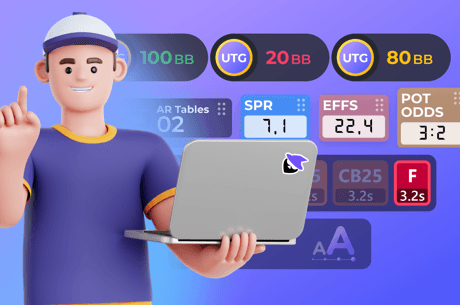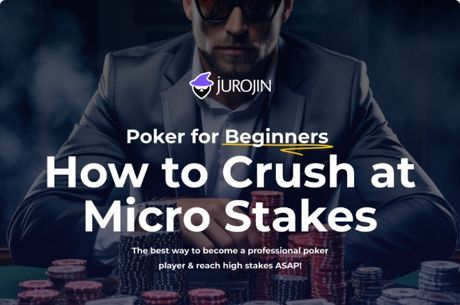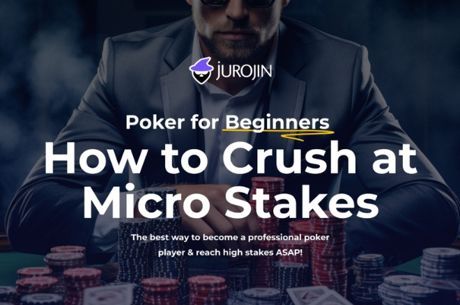How to Gather Reads When Playing Against Anonymous Opponents

How can you collect reads when you don't know who your opponent is? How can you make better decisions if the information you can gather about other players is limited to a single session?
Many online sites are now "anonymizing" every seat at the table, meaning players aren't identifiable by usernames. You could even be sitting with the same opponent across four different tables, but you would have no way of knowing.
There are still some ways to gather reads, however, despite these limitations.
1. Notice Bet Sizing (Especially on the River)
Seeing a showdown that correlates to a certain bet size is very valuable. If you see an opponent make a small bet on the river with a weak made hand and then a big river bet with a strong made hand, you need to seriously consider the possibility that the player is sizing these bets in relation to hand strength. Recognizing this pattern will mean a few things.
Obviously, you could fold when such a player bets big and call or raise when the bet is small (depending on your hand). But it will also mean some hands, which could normally beat some value bets, are actually bluff catchers when you see a larger size. Meanwhile when you see a small size, hands which might normally be good bluff catchers are actually worth value raising.
Against players who bet big with big hands, you can make big river folds. Then, when they bet small, you can make raises with top pair, top kicker type hands. After all, if they had you beat, they already showed you they would have bet differently.
This type of opponent is one of the most valuable to identify, because you get away when you are coolered and can max out your value when you are narrowly ahead.
2. Keep Track of Timing Tells
If you are only playing a short session online, seeing a timing tell is going to be a bit of a flash in the pan. After all, one moment your opponent is sitting there, and the next they aren’t. That does not mean the work of trying to notice such tells is not worth doing. For example, if you see your opponent suddenly acting quickly after being consistently slow or in rhythm, you should take note of it.
You won’t immediately know what this change in timing signifies, so you have to take the extra step of interpreting it. The point is they are acting with a different timing than usual, not that acting fast means they are bluffing. Some players will bluff quickly in certain situations and others will bet instantly when they are excited about having the nuts, whereas tougher players will balance their timing. You need to pay attention.
Whether players are anonymous or not, they are clicking buttons the same way you are, and therefore the adrenaline will affect them as it would with a screen name or not. The timing you notice will only be good for one session, but it can make all the difference in a big spot. So take note.
3. Remember Three-Bet Sizing
How your opponents size their three-bets (i.e., preflop reraises) is also a key indicator of their style of play. Remember, from a math perspective, when they three-bet the minimum, you should continue with every hand, almost always by calling. The larger they three-bet, the larger portion of your range you should fold.
Of course, in order to understand the significance of these clues, you need to pay attention at showdown. Some recreational players will three-bet larger with good hands, but ones they feel are vulnerable — A-K and J-J most typically. To their detriment, they will three-bet a more consistent size with bluffs and hands they feel are not vulnerable, like K-K and A-A.
Once you recognize the pattern, you can then be bold with your Q-Q when they tell you with their three-bet sizes they are vulnerable (since you are always ahead), and be cautious whenever they give you a suspiciously good price.
These are and will likely remain the most prominent tells in online poker, whether you know who your opponent is or not. Is it that important, after all, if you know they wrote "JebSpringfield42" when they signed up for the poker site? "Player 5" is enough to observe them making mistakes.
4. Say It Out Loud
Some sites will not allow you to add notes to a player who is anonymous. Instead of having a pen and a pad or an open text file for one session, I would recommend actually saying your reads out loud to yourself. Narrate what you observe. You'll discover when you do that these observations will stick in your mind more easily, and you'll also likely keep more engaged with what is going on at the table.
“Okay, now the guy on my right is firing the flop and the turn instantly against the guy on my left," you might say while watching a hand after folding. "And he gave up river with the ace-high flush draw. Okay, so he bet instantly because he knew he was going to bet the nut flush draw no matter what. Then he paused on the river to think about whether to give up. And he did give up in the end.”
That kind of self-talk might annoy the other people at Starbucks, but in terms of dealing with an anonymized environment, it can help you when gathering your reads, and keeping them in mind for when the time comes to act upon them.










